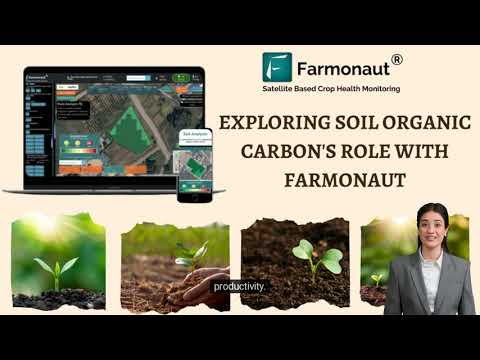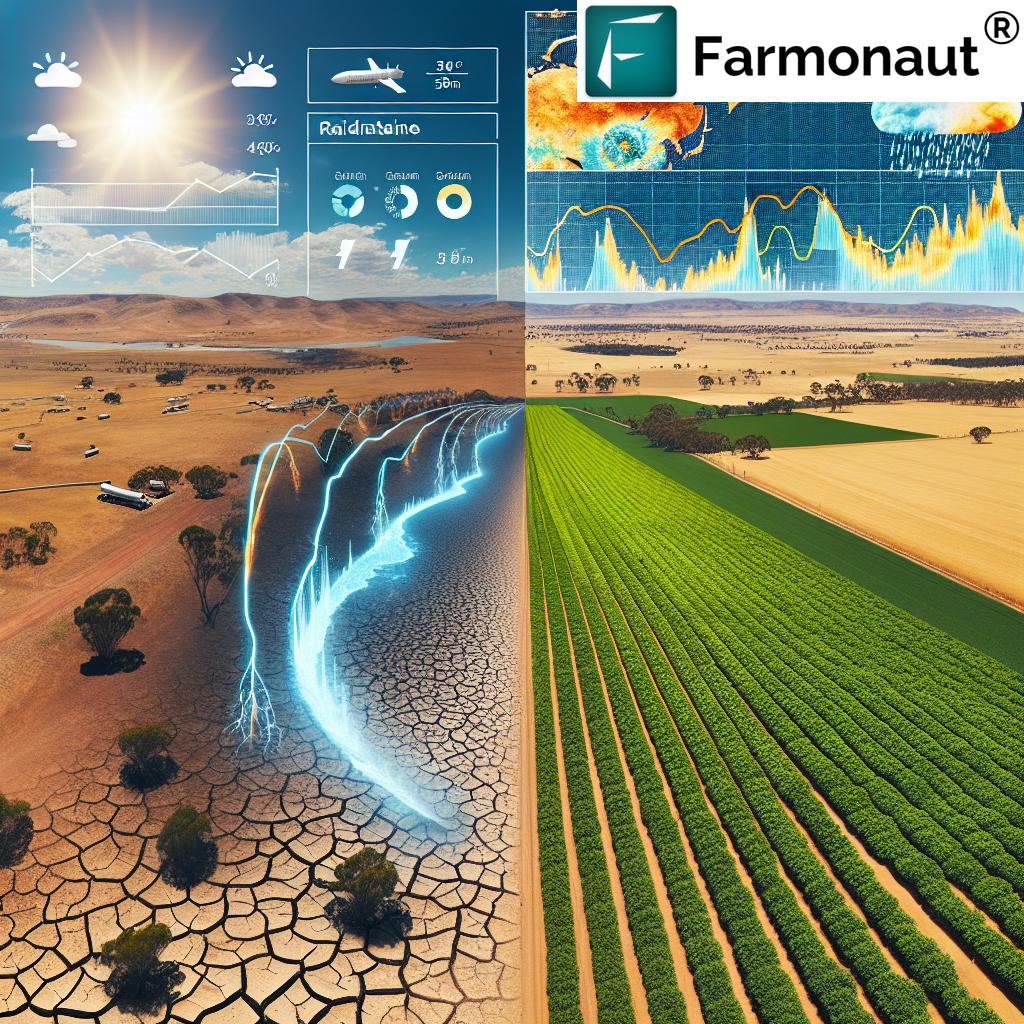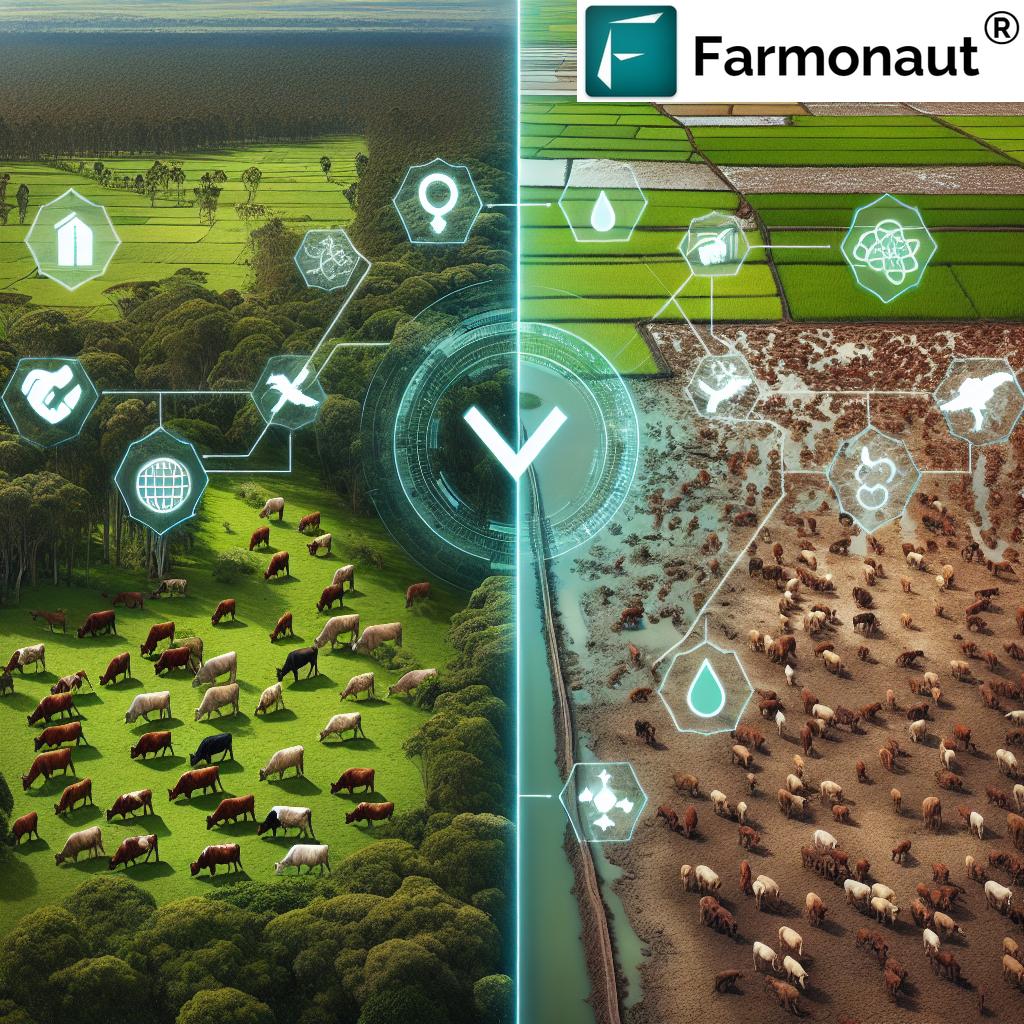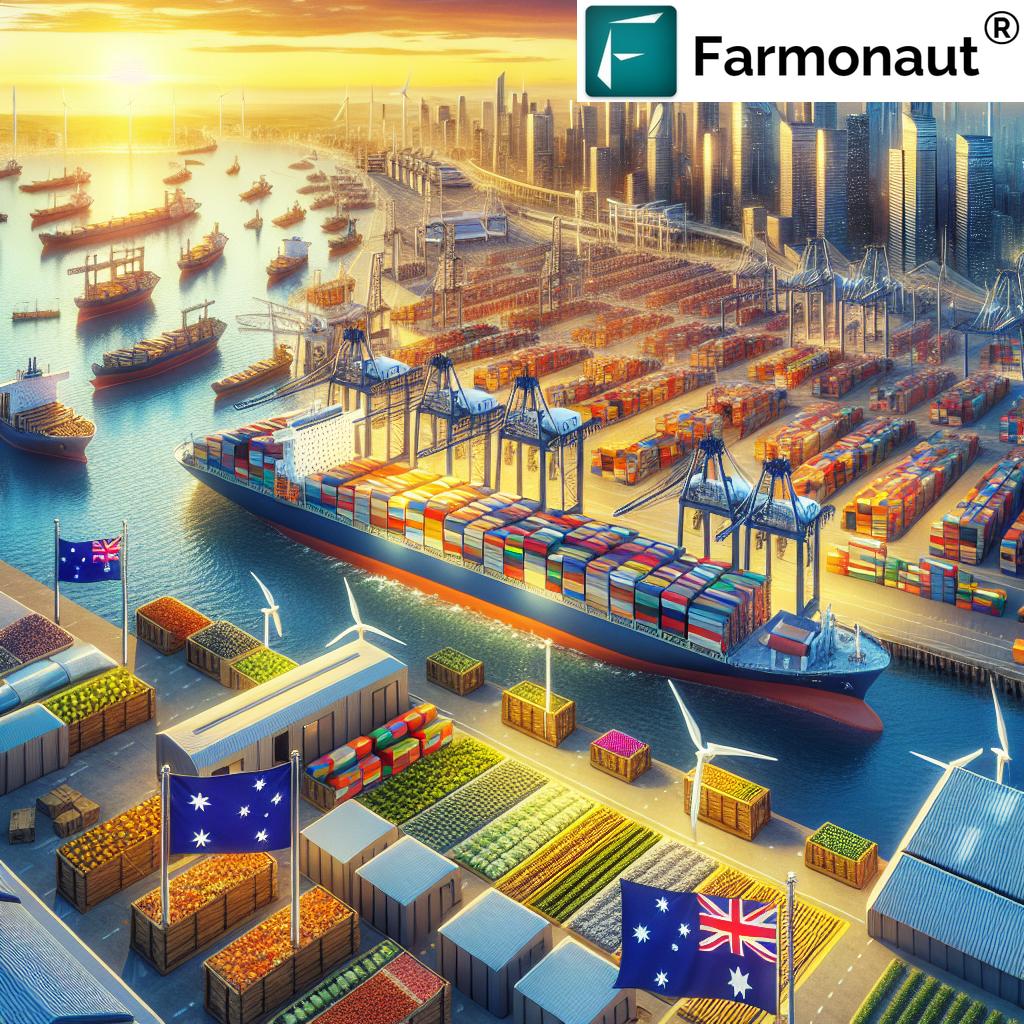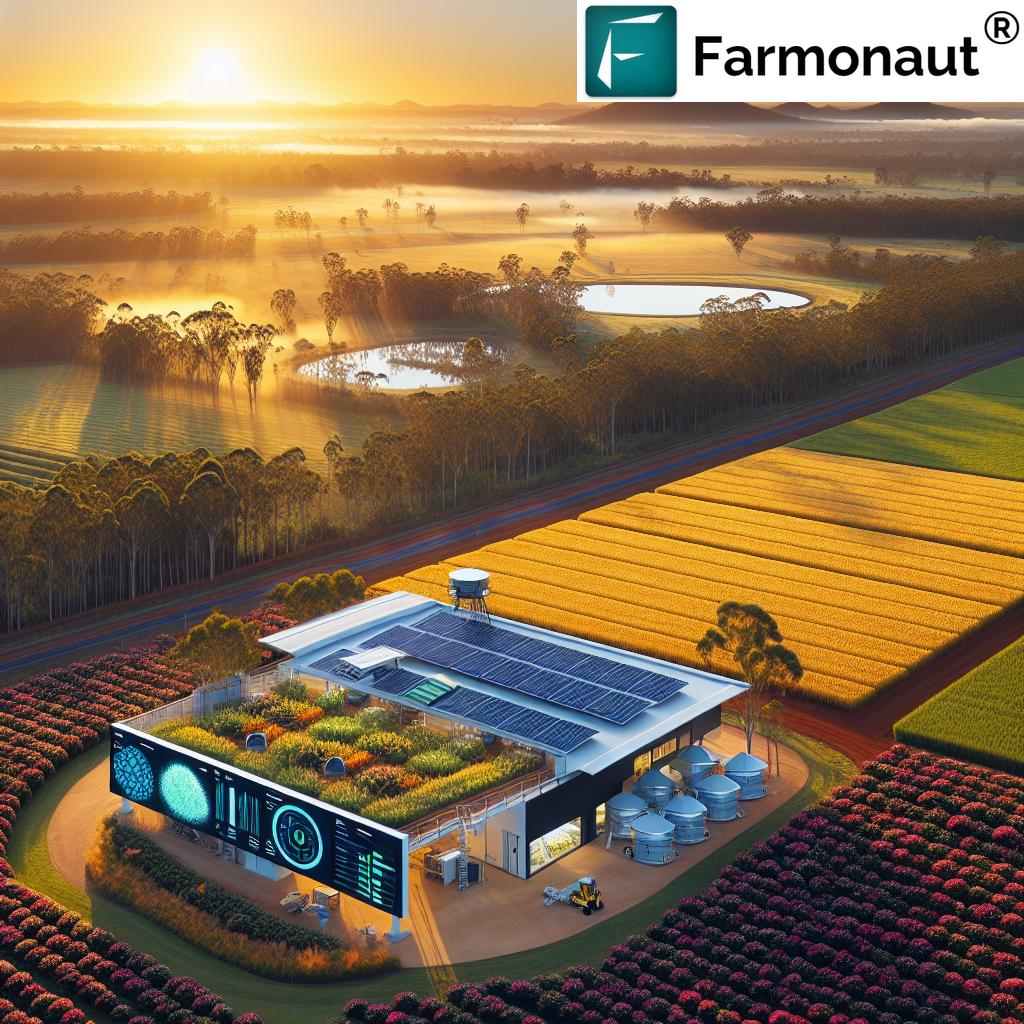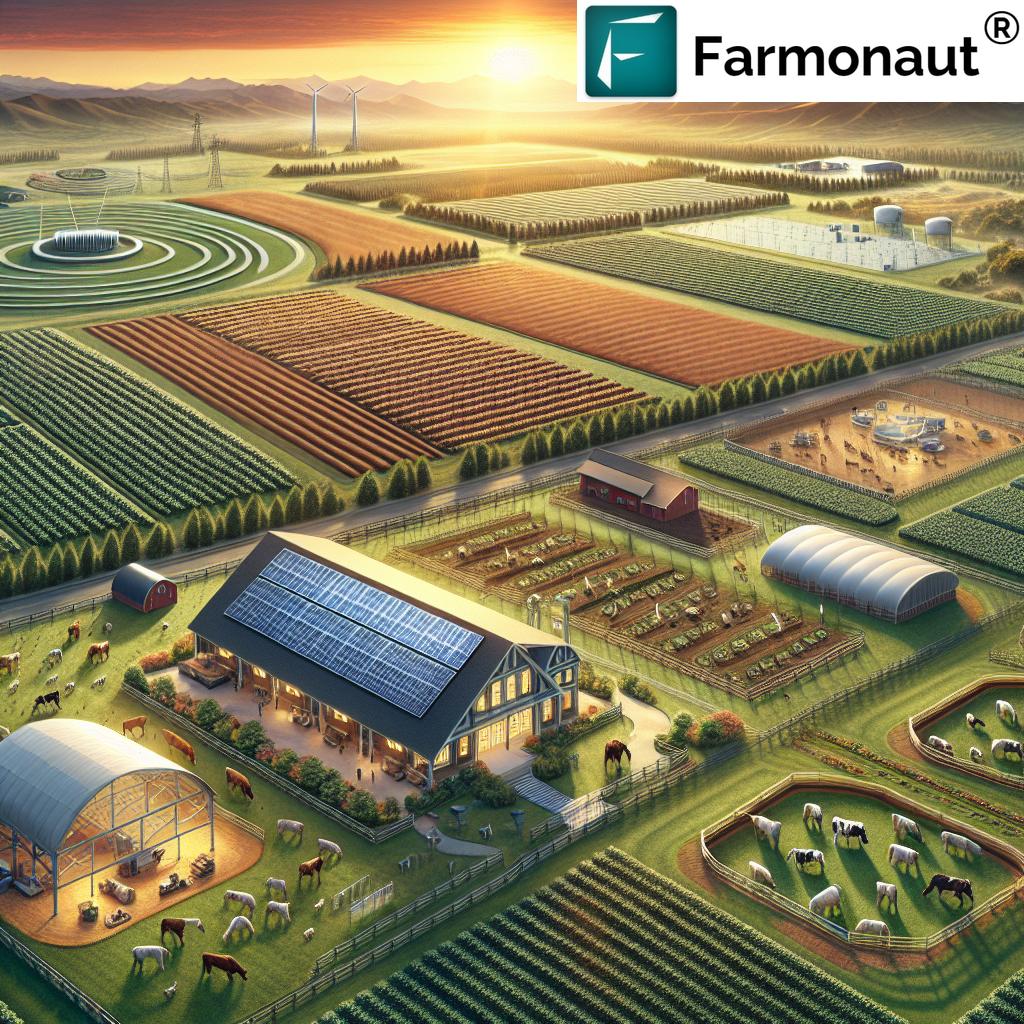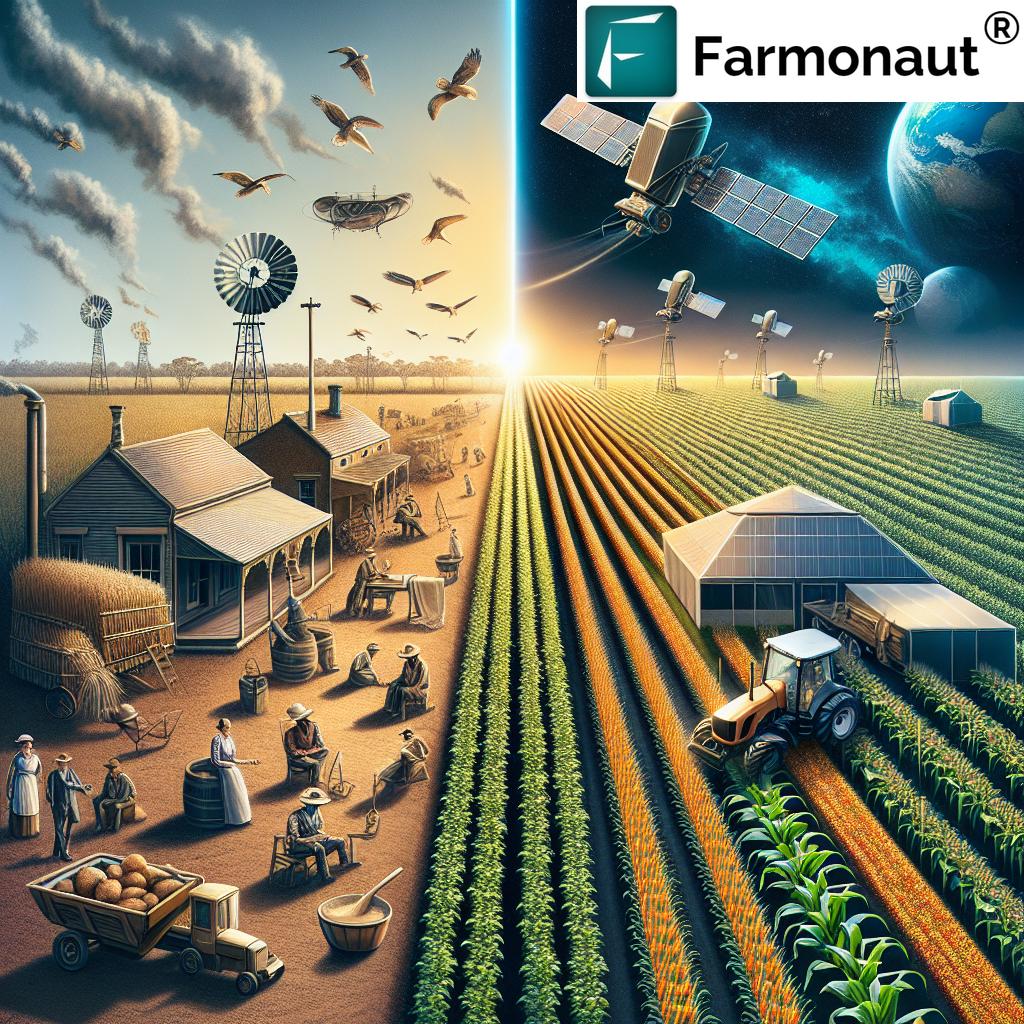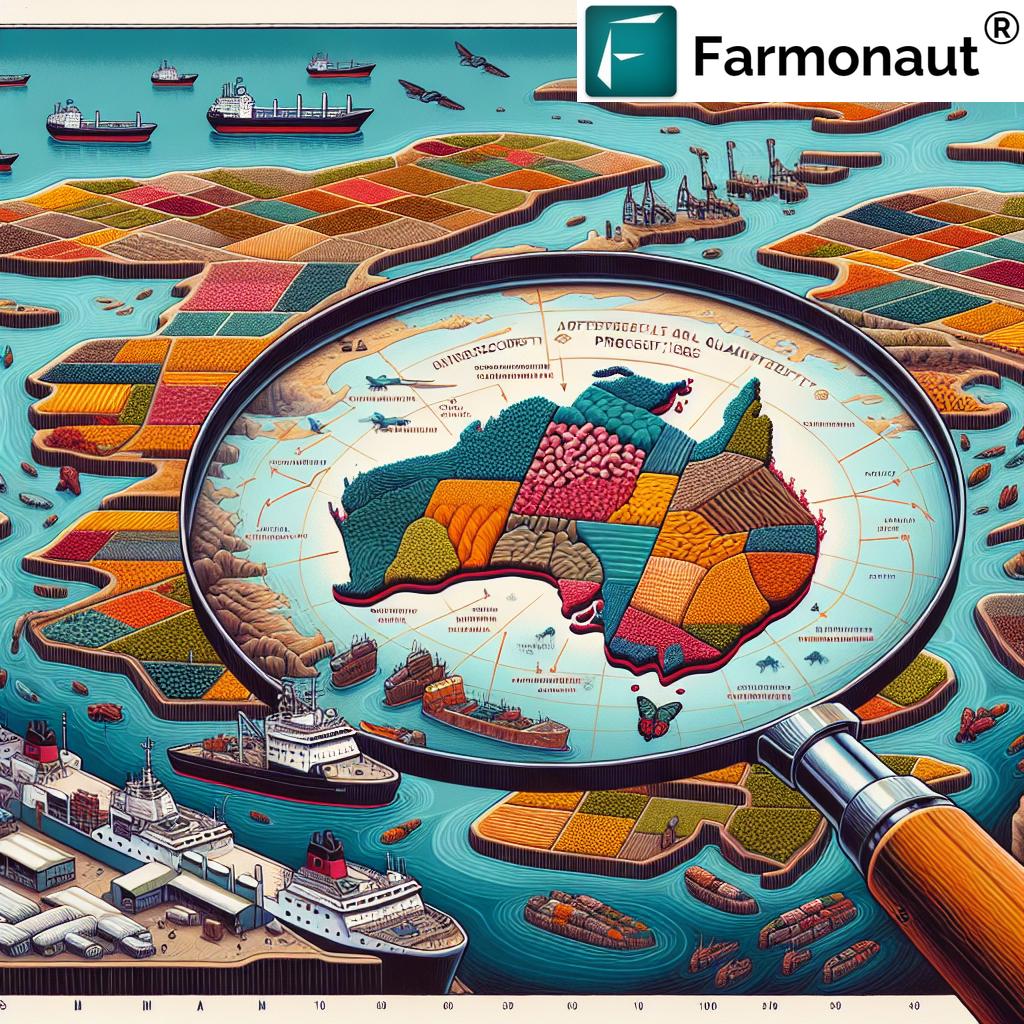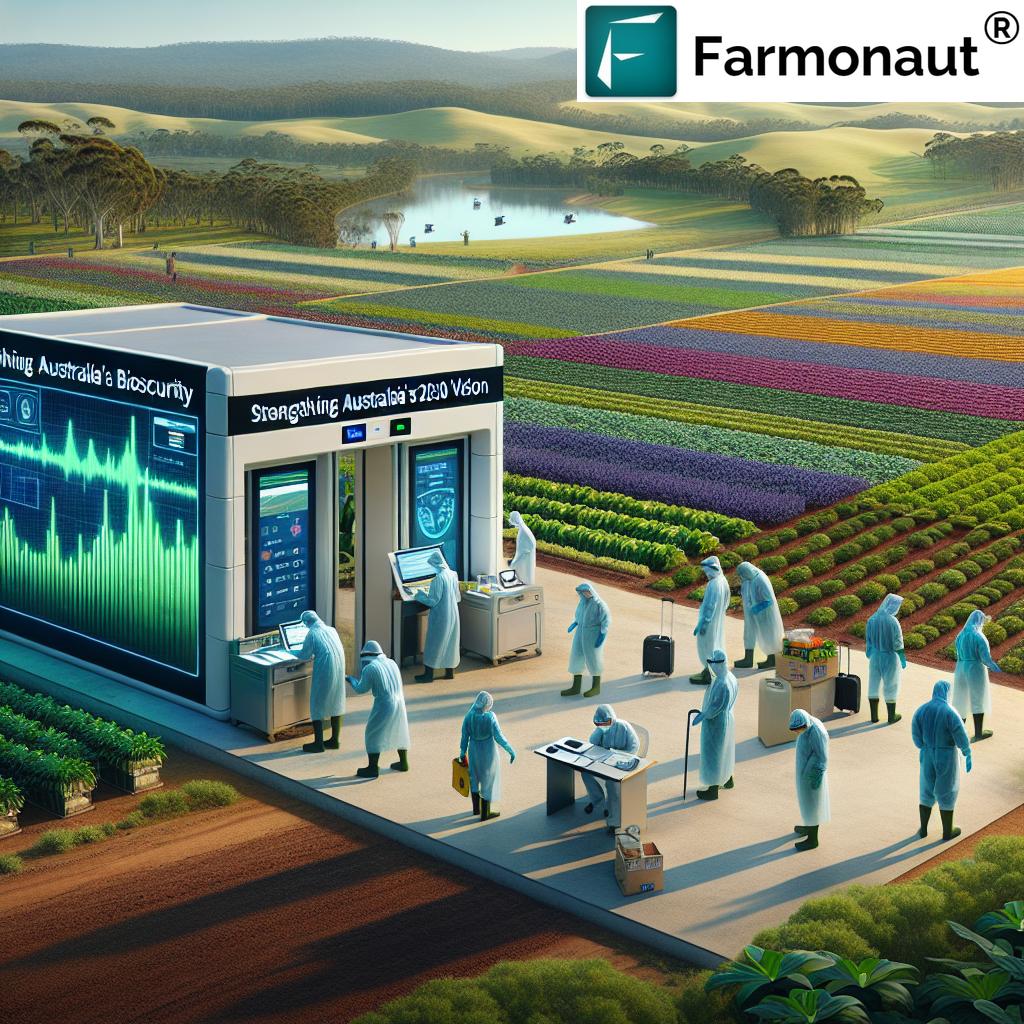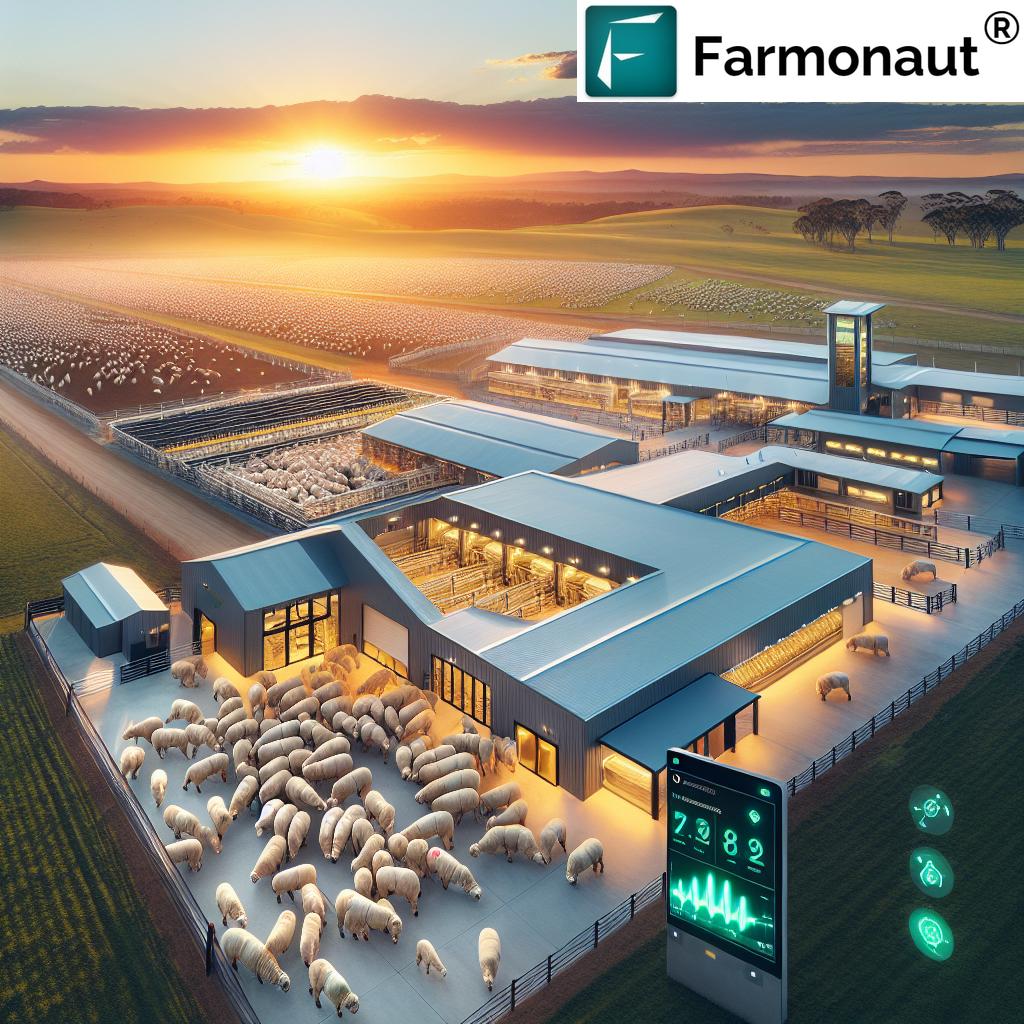Sustainable Agriculture in Queensland: Balancing Reef Protection and Farm Productivity with Farmonaut’s Precision Technology
“The Reef 2050 Water Quality Improvement Plan addresses impacts on 2,300 km of the Great Barrier Reef coastline.”
In the heart of Queensland, Australia, a delicate balance is being struck between the needs of agricultural producers and the preservation of one of the world’s most precious natural wonders – the Great Barrier Reef (GBR). As we navigate the challenges of climate change and increasing agricultural demands, the Reef 2050 Water Quality Improvement Plan (WQIP) has emerged as a beacon of hope, guiding us towards sustainable practices that protect both our farmlands and our marine ecosystems.
At Farmonaut, we’re at the forefront of this agricultural revolution, providing cutting-edge precision technology that empowers farmers to make informed decisions while minimizing their environmental impact. Our satellite-based solutions are helping to reshape the landscape of Queensland’s agriculture, offering a pathway to increased productivity without compromising the health of the Great Barrier Reef.
The Reef 2050 WQIP: A Blueprint for Sustainable Agriculture
The Reef 2050 Water Quality Improvement Plan is a comprehensive strategy that addresses the complex interplay between land management practices and the health of the Great Barrier Reef. At its core, the plan recognizes that what happens on our farms has a direct impact on the quality of water flowing into the reef catchments.
- Reducing agricultural runoff
- Improving soil health and vegetation cover
- Implementing best management practices
- Enhancing water quality monitoring systems
These objectives form the foundation of a sustainable agricultural future for Queensland, one where farm productivity and environmental stewardship go hand in hand.
Farmonaut’s Role in Precision Agriculture
As we delve deeper into the challenges faced by Queensland farmers, it’s clear that precision agriculture is key to achieving the goals set out in the WQIP. This is where Farmonaut’s technology comes into play, offering a suite of tools designed to optimize farm management and reduce environmental impact:
- Satellite-Based Crop Health Monitoring: Our advanced imagery provides real-time insights into vegetation health, soil moisture levels, and other critical metrics.
- Jeevn AI Advisory System: This AI-driven tool delivers personalized farm advice, weather forecasts, and expert crop management strategies.
- Carbon Footprinting: We help agribusinesses track and reduce their environmental impact through real-time emissions data.
By leveraging these technologies, Queensland farmers can make data-driven decisions that not only boost their productivity but also contribute to the overall health of the Great Barrier Reef ecosystem.
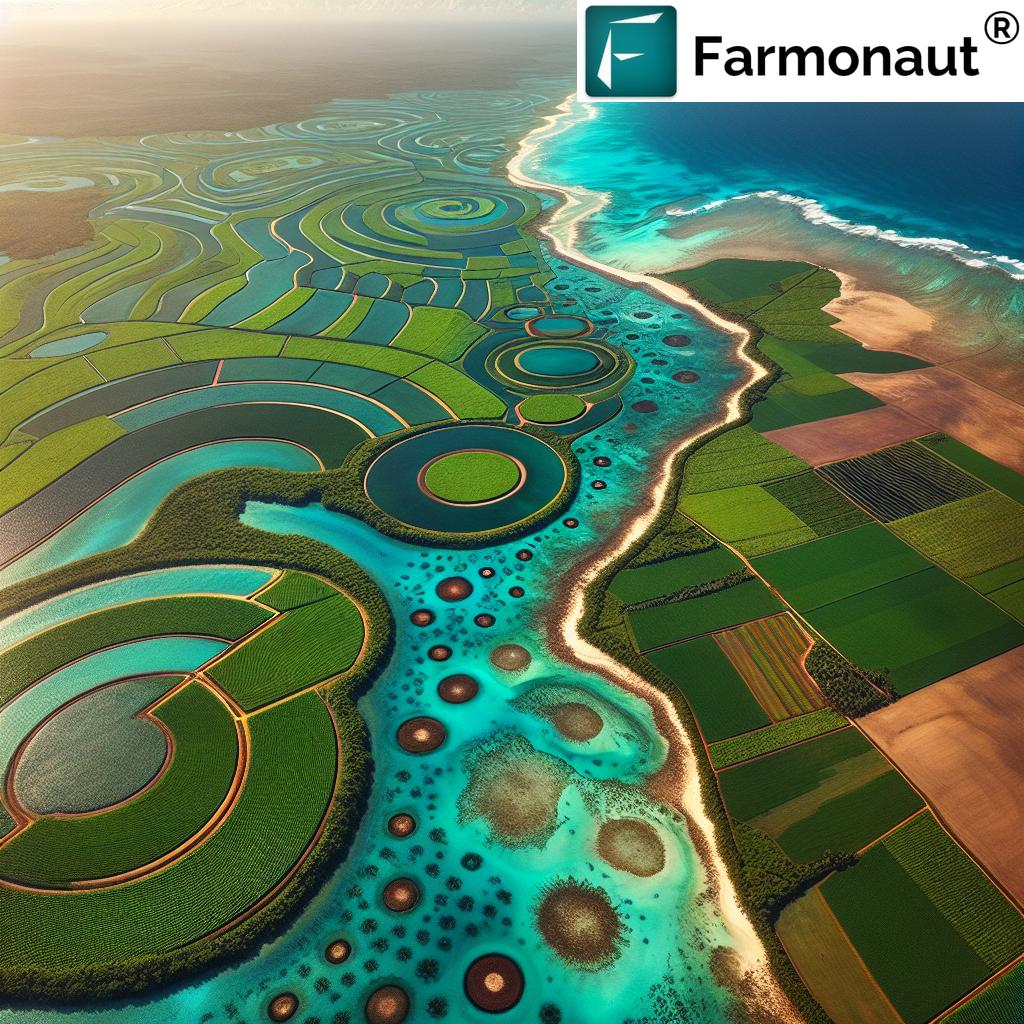
Integrated Catchment Management: A Holistic Approach
The concept of integrated catchment management is central to the success of the Reef 2050 WQIP. This approach recognizes that water quality issues cannot be addressed in isolation but require a comprehensive strategy that takes into account all land use activities within a catchment area.
Farmonaut’s technology supports this holistic approach by providing:
- Detailed mapping of land use and vegetation cover
- Monitoring of sediment and nutrient runoff
- Tracking of changes in land management practices over time
By integrating this data with on-ground observations and scientific modeling, we can create a more complete picture of catchment health and identify areas where intervention is most needed.
Nutrient Management: Precision for Productivity and Protection
One of the key challenges addressed by the WQIP is the management of nutrients in agricultural systems. Excess nutrients, particularly nitrogen and phosphorus, can lead to algal blooms and other water quality issues that threaten the health of the Great Barrier Reef.
Farmonaut’s precision agriculture tools enable farmers to:
- Accurately assess crop nutrient requirements
- Apply fertilizers with pinpoint accuracy
- Monitor nutrient uptake and runoff in real-time
This level of precision not only reduces the risk of nutrient pollution but also helps farmers optimize their inputs, leading to cost savings and improved crop yields.
Soil Erosion Prevention: Protecting Our Most Valuable Resource
Soil erosion is another critical issue addressed by the WQIP, as it contributes to sediment runoff that can smother coral reefs and seagrass beds. Farmonaut’s satellite imagery and AI-powered analysis help farmers identify areas at risk of erosion and implement targeted prevention strategies.
Key soil erosion prevention techniques supported by our technology include:
- Contour plowing and terracing
- Cover cropping and mulching
- Riparian buffer zone management
By combining these practices with real-time monitoring, we can significantly reduce sediment loads in reef catchments while improving soil health on farms.
Agri-Environmental Monitoring Systems: The Power of Data
Effective implementation of the WQIP relies heavily on robust monitoring systems that can track progress and identify emerging issues. Farmonaut’s platform integrates with a wide range of environmental sensors and data sources to provide comprehensive agri-environmental monitoring.
Our monitoring systems cover:
- Water quality parameters in rivers and streams
- Soil moisture and nutrient levels
- Vegetation cover and crop health indices
- Weather patterns and climate trends
This wealth of data allows for evidence-based decision-making at both the farm and policy levels, ensuring that efforts to improve water quality are targeted and effective.
“Queensland’s sustainable agriculture practices aim to reduce sediment runoff by up to 25% in key reef catchments.”
Best Management Practices for Queensland Farmers
The adoption of best management practices (BMPs) is a cornerstone of the Reef 2050 WQIP. These practices are designed to optimize farm productivity while minimizing environmental impact. Farmonaut supports the implementation of BMPs through our precision agriculture tools and AI-driven advisory services.
Key BMPs promoted by the WQIP and supported by Farmonaut include:
- Precision nutrient application
- Integrated pest management
- Efficient irrigation systems
- Improved grazing land management
- Erosion control measures
By adopting these practices and leveraging Farmonaut’s technology, Queensland farmers can play a crucial role in protecting the Great Barrier Reef while maintaining profitable and sustainable operations.
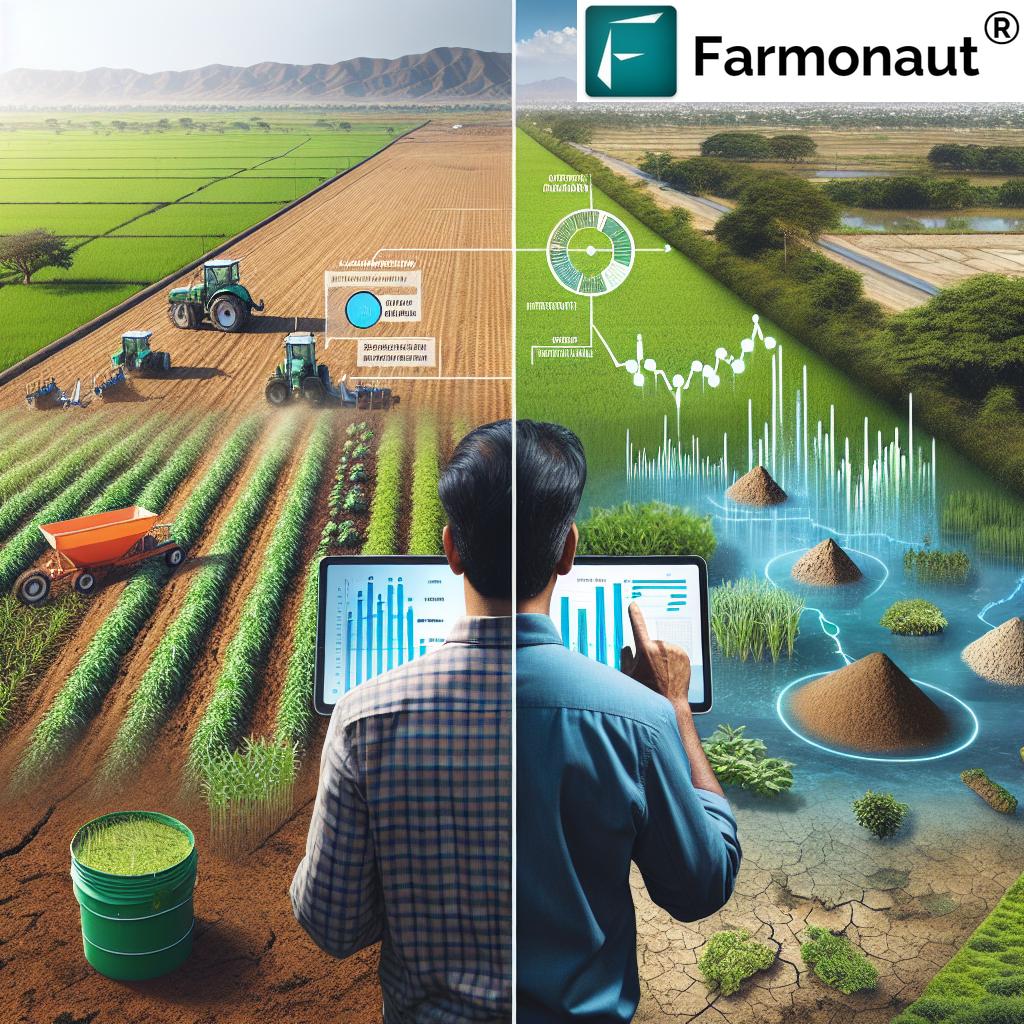
Climate Change Adaptation in Queensland Agriculture
The impacts of climate change pose significant challenges to both agricultural productivity and the health of the Great Barrier Reef. The WQIP recognizes the need for adaptive strategies that can help farmers navigate changing conditions while reducing their environmental footprint.
Farmonaut’s technology supports climate change adaptation through:
- Long-term climate trend analysis
- Early warning systems for extreme weather events
- Crop suitability mapping based on changing conditions
- Water use efficiency monitoring and optimization
By helping farmers anticipate and respond to climate-related challenges, we can build a more resilient agricultural sector that continues to thrive while protecting the Great Barrier Reef.
Stakeholder Engagement and Policy Development
The success of the Reef 2050 WQIP depends on effective collaboration between farmers, government agencies, scientists, and environmental groups. Farmonaut’s platform facilitates this collaboration by providing a common data framework and decision-support tools that can inform policy development and on-ground action.
Key aspects of stakeholder engagement supported by our technology include:
- Data sharing and visualization tools
- Scenario modeling for policy impact assessment
- Performance tracking against water quality targets
- Facilitation of knowledge exchange between stakeholders
By fostering a collaborative approach to water quality improvement, we can ensure that the WQIP remains responsive to the needs of both farmers and the environment.
The Role of Science in Decision-Making
The Reef 2050 WQIP is firmly grounded in scientific evidence, recognizing that effective environmental management requires a deep understanding of complex ecological systems. Farmonaut’s technology contributes to this scientific foundation by providing high-resolution data and advanced analytics capabilities.
Our platform supports scientific decision-making through:
- Integration of satellite data with on-ground observations
- Advanced modeling of nutrient and sediment flows
- Machine learning algorithms for pattern detection and prediction
- Collaboration tools for researchers and land managers
By bridging the gap between scientific research and practical farm management, we can accelerate the adoption of evidence-based practices that benefit both agriculture and the Great Barrier Reef.
Innovative Approaches to Reducing Sediment and Nutrient Runoff
The WQIP emphasizes the need for innovative solutions to address the challenge of sediment and nutrient runoff. Farmonaut is at the forefront of developing and implementing these solutions, leveraging our precision agriculture technology to tackle this critical issue.
Innovative approaches supported by our platform include:
- Smart drainage systems with real-time monitoring
- Precision land leveling guided by satellite data
- AI-optimized crop rotation and cover cropping strategies
- Targeted wetland restoration and constructed wetlands
These approaches, combined with traditional best management practices, offer a powerful toolkit for reducing the impact of agriculture on water quality in reef catchments.
Balancing Agricultural Productivity with Ecosystem Health
At the heart of the Reef 2050 WQIP is the recognition that agricultural productivity and ecosystem health are not mutually exclusive goals. In fact, many of the practices that improve water quality also contribute to long-term farm sustainability and profitability.
Farmonaut’s technology helps farmers achieve this balance by:
- Optimizing input use to reduce costs and environmental impact
- Identifying high-value conservation areas on farms
- Supporting the development of ecosystem service markets
- Facilitating the adoption of regenerative agriculture practices
By demonstrating the economic benefits of sustainable practices, we can accelerate the transition to a more environmentally friendly agricultural sector in Queensland.
The Future of Sustainable Agriculture in Queensland
As we look to the future, the role of precision agriculture technology in achieving the goals of the Reef 2050 WQIP will only grow in importance. Farmonaut is committed to continual innovation, developing new tools and approaches that will help Queensland farmers meet the challenges of sustainable production in a changing climate.
Some of the emerging trends we’re exploring include:
- Integration of drone technology with satellite imagery for ultra-high-resolution monitoring
- Advanced AI models for predicting and mitigating environmental risks
- Blockchain-based traceability systems for sustainable agricultural products
- IoT sensor networks for real-time environmental monitoring
By staying at the forefront of agricultural technology, we can ensure that Queensland remains a leader in sustainable farming practices that protect the Great Barrier Reef while supporting a thriving agricultural sector.
Comparative Analysis of Agricultural Practices and Their Impact on Great Barrier Reef Water Quality
| Agricultural Practice | Nutrient Runoff (kg/ha/year) | Sediment Loss (t/ha/year) | Water Quality Impact | Farm Productivity | GBR Ecosystem Benefit |
|---|---|---|---|---|---|
| Conventional tillage | 50-100 | 10-20 | High | Medium | Low |
| Precision nutrient management | 20-40 | 5-10 | Low | High | High |
| Integrated pest management | 30-60 | 8-15 | Medium | High | Medium |
| Cover cropping | 15-30 | 2-5 | Low | Medium | High |
| Riparian buffer zones | 10-25 | 1-3 | Low | Low | High |
| Controlled traffic farming | 25-50 | 3-8 | Medium | High | Medium |
This table clearly illustrates the benefits of adopting sustainable agricultural practices, as promoted by the Reef 2050 WQIP and supported by Farmonaut’s precision technology. Practices such as precision nutrient management and cover cropping show significant reductions in nutrient runoff and sediment loss, while maintaining or improving farm productivity. These approaches offer the best balance between agricultural output and protection of the Great Barrier Reef ecosystem.
Conclusion: A Shared Vision for Queensland’s Future
The Reef 2050 Water Quality Improvement Plan represents a shared vision for the future of Queensland – one where thriving farms coexist with a healthy Great Barrier Reef. At Farmonaut, we’re proud to play a role in turning this vision into reality through our innovative precision agriculture technology.
By providing farmers with the tools they need to make informed decisions, optimize their operations, and reduce their environmental impact, we’re helping to build a more sustainable and resilient agricultural sector. At the same time, our technology is contributing to the protection and preservation of one of the world’s most precious natural wonders.
As we move forward, the collaboration between farmers, scientists, policymakers, and technology providers like Farmonaut will be crucial in addressing the challenges of climate change and ensuring the long-term health of both our agricultural lands and the Great Barrier Reef. Together, we can create a future where sustainable agriculture and environmental stewardship go hand in hand, securing Queensland’s prosperity for generations to come.
To learn more about how Farmonaut’s precision agriculture technology can support your farm’s sustainability goals, visit our web app or explore our API for custom integrations. For detailed information on our API capabilities, check out our API Developer Docs.
FAQ Section
Q: How does Farmonaut’s technology contribute to the goals of the Reef 2050 WQIP?
A: Farmonaut’s precision agriculture technology supports the WQIP by providing farmers with tools for accurate crop monitoring, efficient resource management, and reduced environmental impact. Our satellite-based solutions help minimize nutrient runoff and soil erosion, which are key objectives of the plan.
Q: Can small-scale farmers benefit from Farmonaut’s precision agriculture tools?
A: Absolutely. Farmonaut’s solutions are designed to be accessible and affordable for farmers of all scales. Our mobile apps and web platform provide valuable insights that can help small-scale farmers optimize their operations and adopt sustainable practices.
Q: How does Farmonaut’s technology help in adapting to climate change?
A: Our platform provides long-term climate trend analysis, early warning systems for extreme weather events, and crop suitability mapping based on changing conditions. This helps farmers make informed decisions and adapt their practices to evolving climate patterns.
Q: Is Farmonaut’s data compatible with other agricultural management systems?
A: Yes, Farmonaut offers API access that allows for integration with various farm management systems. This ensures that our satellite and weather data can be seamlessly incorporated into existing workflows and decision-making processes.
Q: How does Farmonaut support compliance with the Reef 2050 WQIP regulations?
A: Farmonaut’s monitoring and reporting tools help farmers track their environmental performance and demonstrate compliance with WQIP regulations. Our platform provides data on key metrics such as nutrient use efficiency and sediment control, which are essential for regulatory reporting.




